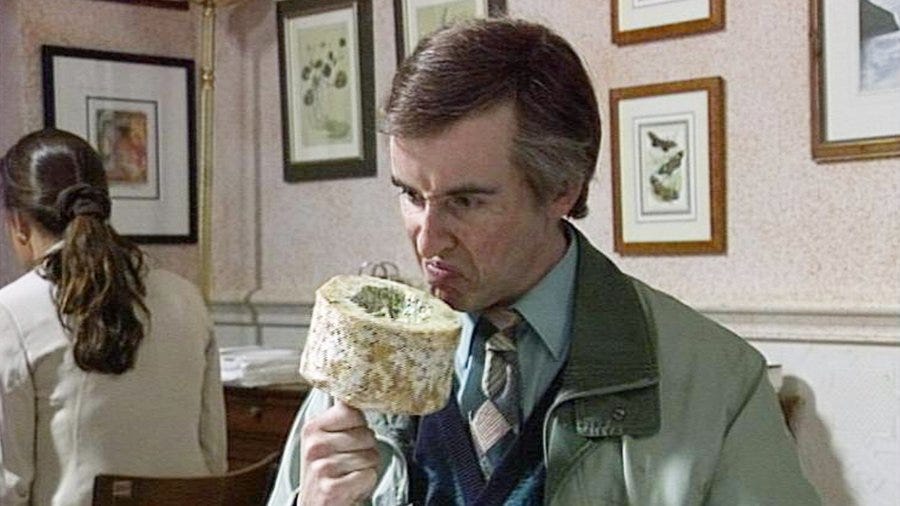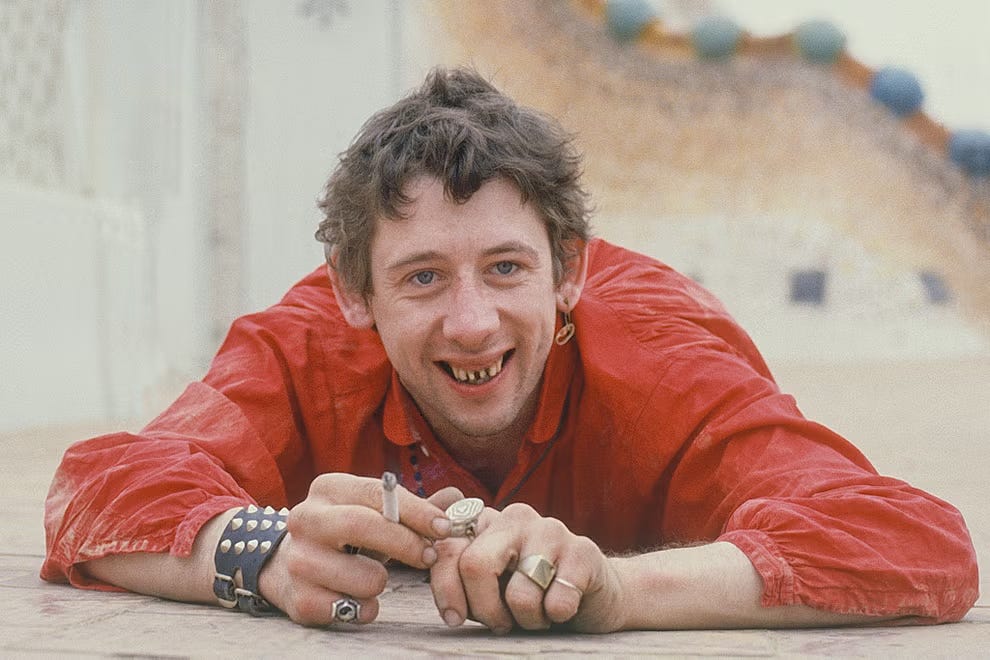I know this is a symptom of boorish irritability, but I’m helpless to correct it: recently, I’ve begun collating the headlines of the most egregiously banal columns in our major ‘papers. It’s petty, bitter and pointless, but perhaps you’ll be more sympathetic if I give you some examples. All of these come from The Age in recent months, and not my local Neighbourhood Watch newsletter:
* I’m a travel writer, but I can’t do 10 overseas trips a year any more
* Ssssshhh! I’m here for the gig, not your loud voice
* The secret to a perfect night’s sleep? A manky, yellow pillow
Newspaper writers have long complained about the headlines their pieces attract, something which, in the division of journalism’s labour, they have no influence over. They complain that the relationship between headline and story is misaligned. That it’s misleading. That it promises too much, or too little. That it’s grossly sensational, or insultingly dull.
But here, dear reader, I can assure you that the leaden inanity promised by the headlines are perfectly fulfilled by the pieces themselves.
Anyway: In my idle curation of this trash, I realised there was one writer who was disproportionately represented in my list. Each month, with depressing regularity, a headline would appear from our “Melbourne-based writer” – and it always compelled its inclusion. The headlines were specimens of a powerfully depressing phenomenon: profoundly trivial grievances expressed with great conviction. In other words, they sound exactly like Alan Partridge.
Here are just two:
* Can you give a woman a compliment on her appearance? Not any more, it seems
* Your giant umbrella is very stylish, but you need to stop being a brolly bully
I mean, my belief is that no subject should not be written about – it’s the quality of writing that matters. Max Beerbohm wrote enchanting essays on walking and laughter. GK Chesterton wrote a great one about a white stick of chalk. Here’s Zadie Smith on peonies.
But the above pieces were as pinched and charmless as their headlines suggested. Dumb and idle and reeking of rotting wood. Here was the most boring kind of solipsism – the world reduced to one man’s tiny upset. I burnt my mouth on a hot-dog, and here’s why preventative detention is the answer.
Here’s our Partridge impersonator on the behaviour of theatre crowds: “Parents are at fault here too. Some persist in turning a ticket to a popular musical into a chance for diddy-bopping along with the kids. Wicked is not the Wiggles. This teaches children that anything goes in the theatre.”
That man is Christopher Bantick, a former teacher, and may God spare his former students. Writing this, I was reminded of his temporary notoriety some years back, when he wrote the following:
I am over the homeless in Melbourne. I am tired of hearing the excuses as to why the homeless need special understanding. Why do I have to show special understanding to the homeless who trash the city pavements? … It is an appalling advertisement for tourists and especially those attending the Australian Open.
What exaltation Bantick must experience! To find that his witless expressions of grievance – which around a barbecue would be considered anti-socially dull and furiously punishable – could serially capture the interest of a major newspaper! To survey a street one day, wince at the size of an umbrella, and know that there was an influential editor hungry for 800 words!
According to research from Monash University, an average of 20 people go to emergency departments across 38 Victorian hospitals with umbrella-related injuries each year. Of these, open wounds were the most common injury at 31 per cent, while eye injuries accounted for 18 per cent… It is no comfort, but nonetheless telling, that women are more often injured by umbrellas than men.
This is pure Partridge. So is this:
According to Safe Work Australia, there should be precautions with anything that will cause risk… While this may not be front of mind for someone hastily raising an umbrella on Collins Street, some advertising about umbrella etiquette on Melbourne’s public transport it would be prudent.
Presumably, these trite farts – hilariously scaffolded by statistics – are being read widely, because Bantick seems to be popular with the opinion editors lately. He’s making traffic, though we can’t know just how many are reading in the belief that he’s a Common Prophet, and how many are reading in cringey astonishment.
Either way, it’s depressing and makes me faintly ashamed that we share the same game. It also makes me wonder why I fucking bother.
Shane MacGowan finally shuffled off last week, and soulless expression is not something he’ll be remembered for. He was eulogised, of course, for his lyricism and hedonism – for the songs and defiant self-degradation. Sixty-five was not a bad age for the Irishman who’d begun drinking well before puberty, and often looked as if he were dancing upon the edge of the grave.
I’m too grateful for the Pogues’ second and third albums to chide MacGowan for his excess – and his frequent romanticisation of that excess. “Self-abuse, or whatever you wanna call it, is also incredibly creative,” he said in 1990. And, later, “Drunks are far more intelligent than non-drunks – they spend a lot of time talking in pubs, unlike workaholics who concentrate on their careers and ambitions, who never develop their higher spiritual values, who never explore the insides of their head like a drunk does me.”
It would be a naïve or puritanical soul who discounted the creative benefits of drugs, and I’d be a hypocrite if I ever joined them. But booze, junk and acid also carry heavy taxes, and the sad truth is that MacGowan’s genius was enabled by them for only a very small time. I’d suggest that MacGowan was a world-class songwriter for only about four years – 1984 to ’88. The work which made and sustained his legacy were almost all written then.
Intuitively, and unforgettably, he combined Irish folk with the snarling energy of punk. He sang about heaven with a voice from the gutter. He wrote vivid characters and drew deliciously upon Celtic mythology, James Joyce and Jean Genet. Drunk, stoned and petulant, he performed with piquant and unapologetic self-possession – swaggering with his lit dart and medieval peasant’s teeth.
He was a force, until he wasn’t, and I can’t be alone in wishing he’d paid slightly fewer taxes and looked after that talent a little longer. He was expelled from The Pogues in 1991, and never released another album after ’97. His last decade was spent in a wheelchair watching telly, offering only the occasional interview, in which he usually expressed monosyllabic contempt.
He was not well, and he wasn’t well for a long time. In the 2020 documentary, Crock of Gold, not even the visits of pals Johnny Depp, Bobby Gillespie or Gerry Adams can rouse much lyricism or introspection from the man. There was little evidence of his love of language, or attachments to history. He had played hard, and the glory days were now quite far behind. What we saw was a sullen residue. What we saw was sad.
But fuck pity or scorn for a man I never knew, a man who wrote at least two of the most beautiful songs I’ve ever heard. There’s no Alan Partridge in “A Rainy Night in Soho” or “A Pair of Brown Eyes” in which MacGowan’s soul is expressed with its full powers of melody, lyricism, and imaginative sympathy.
Here was a distinctive man with a chaotic and inscrutable soul who, for a short time, felt both the grace of God and his heavy water, and wrote some very beautiful things. I can’t romanticise his excess, but I can listen to those good and soulful years and find an answer as to why I fucking bother.





